Overview
Broadly, I'm interested in a diverse set of questions about how children and adults learn and reason about the world around them.
My work uses behavioral experiments and computational modeling techniques to explore these questions.
My doctoral research was focused on how people come to understand rich patterns in other people's behavior over many interactions.
Below is a summary of my work organized by topic, with links to papers, talks, and other fun stuff.
Social and Adaptive Reasoning
When we interact with other people, we often make rich explanations of their behavior and even predictions about what they'll do next. This ability to predict and explain others' behavior is often characterized as arising from our Theory of Mind: the goals, beliefs, and other mental states we attribute to them. In my work, I explore some of the ingredients that go into this process but that are often left out of the picture. This includes patterns in their previous actions, as well as more stable features of who they are, such as traits.
Papers, Presentations, and Posters
 Brockbank, E., Gerstenberg, T., Fan, J. E., & Hawkins, R. (2025).
Brockbank, E., Gerstenberg, T., Fan, J. E., & Hawkins, R. (2025).
How do we get to know someone? Diagnostic questions for inferring personal traits.
In Proceedings of the 47th Annual Conference of the Cognitive Science Society.
[Link to paper] [Link to poster]
Presented at the 51st Annual Conference of the Society for Philosophy and Psychology.
[Link to poster]
 Teo, V., Wu, S., Brockbank, E., & Gerstenberg, T. (2025).
Teo, V., Wu, S., Brockbank, E., & Gerstenberg, T. (2025).
Leave a trace: Recursive reasoning about deceptive behavior.
In Proceedings of the 47th Annual Conference of the Cognitive Science Society.
[Link to paper] [Link to poster]
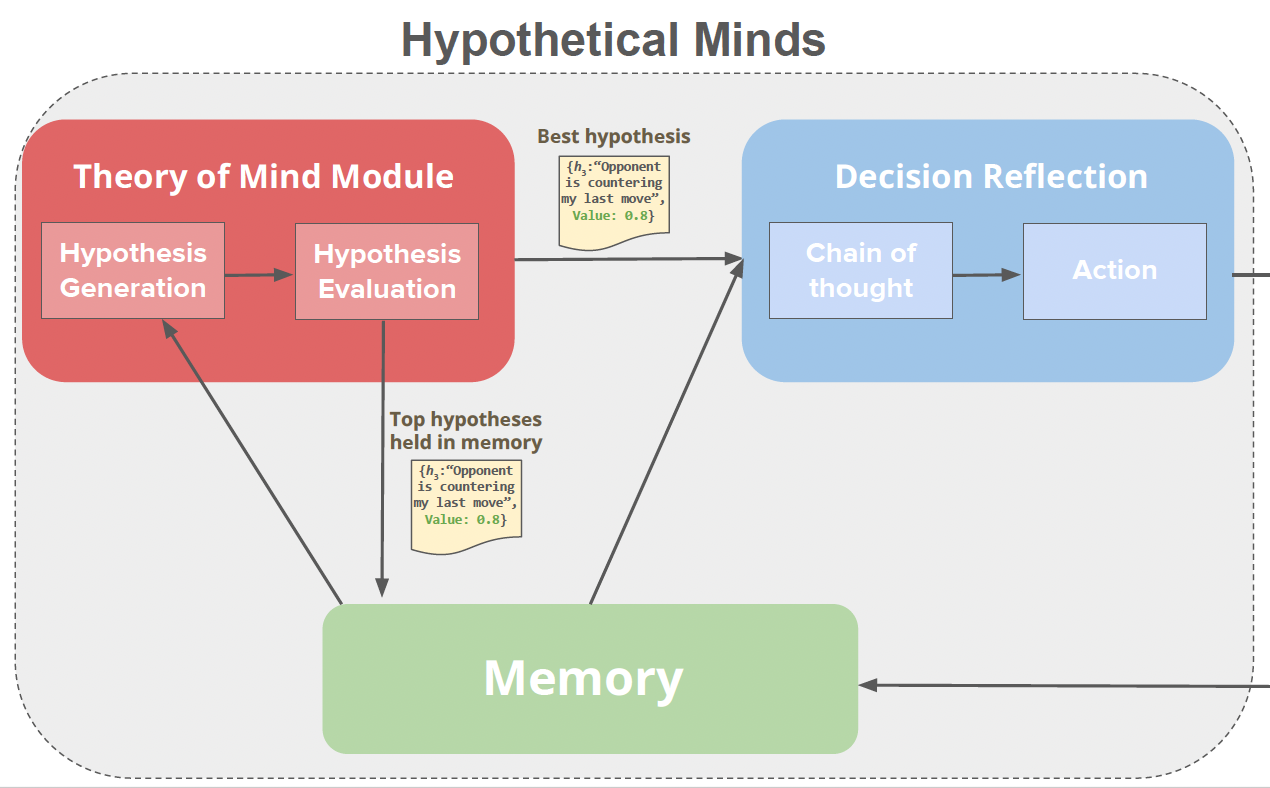 *Cross, L., *Brockbank, E., Gerstenberg, T., Fan, J. E., Yamins, D. L. K., & Haber, N. (2025).
*Cross, L., *Brockbank, E., Gerstenberg, T., Fan, J. E., Yamins, D. L. K., & Haber, N. (2025).
Understanding Human Limits in Pattern Recognition: A Computational Model of Sequential Reasoning in Rock, Paper, Scissors.
In Proceedings of the 8th Annual Conference on Cognitive Computational Neuroscience.
[Link to paper] [Link to poster]
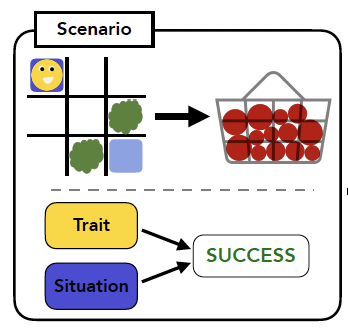 *Brockbank, E., *Yang, J., Govil, M., Fan, J. E., & Gerstenberg, T. (2024).
*Brockbank, E., *Yang, J., Govil, M., Fan, J. E., & Gerstenberg, T. (2024).
Without his cookies, he's just a monster: A counterfactual simulation model of social explanation.
In Proceedings of the 46th Annual Conference of the Cognitive Science Society.
[Link to paper] [Link to poster]
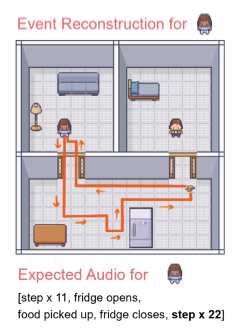 *Wu, S., *Brockbank, E., Cha, H., Fränken, J. P., Jin, E., Huang, Z., Liu, W., Zhang, R., Wu, J., & Gerstenberg, T. (2024).
*Wu, S., *Brockbank, E., Cha, H., Fränken, J. P., Jin, E., Huang, Z., Liu, W., Zhang, R., Wu, J., & Gerstenberg, T. (2024).
Whodunnit? Inferring what happened from multimodal evidence.
In Proceedings of the 46th Annual Conference of the Cognitive Science Society.
[Link to paper] [Link to poster]
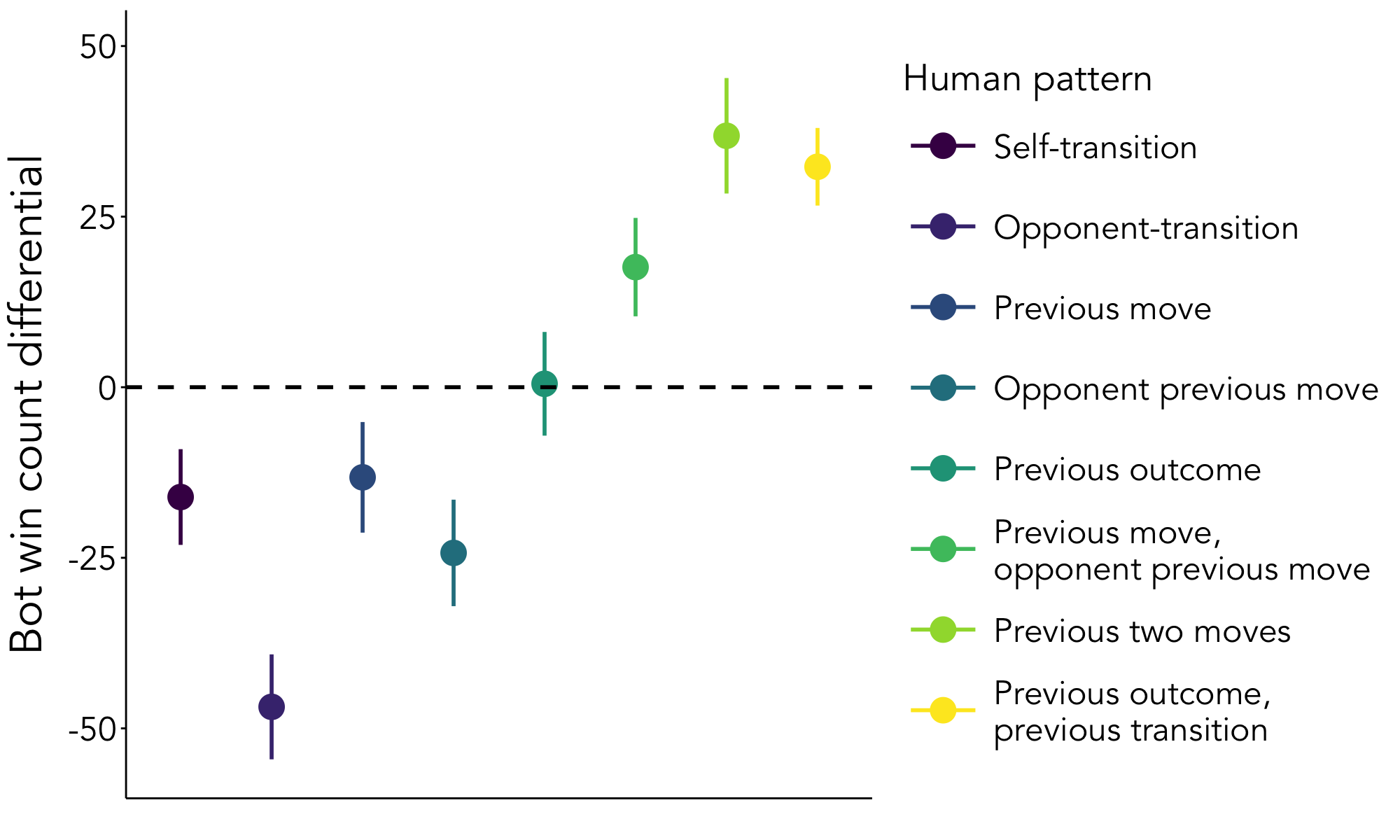 Brockbank, E., & Vul, E. (2024).
Brockbank, E., & Vul, E. (2024).
Repeated rock, paper, scissors play reveals limits in adaptive sequential behavior.
Cognitive Psychology.
[Link to paper]
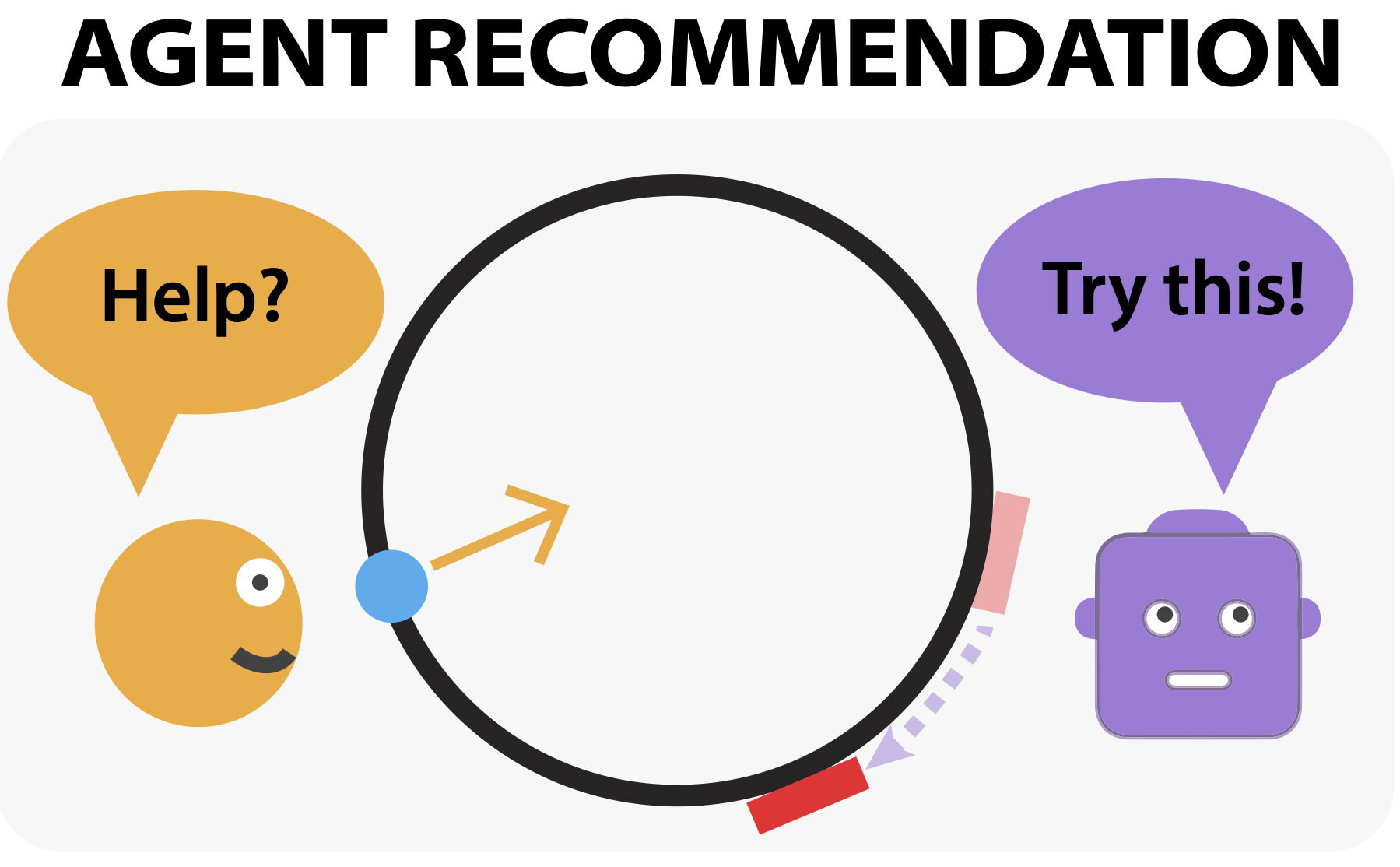 Brockbank, E., Wang, H., Yang, J., Mirchandani, S., Bıyık, E., Sadigh, D., & Fan, J. (2022).
Brockbank, E., Wang, H., Yang, J., Mirchandani, S., Bıyık, E., Sadigh, D., & Fan, J. (2022).
How do people incorporate advice from artificial agents when making physical judgments?
In Proceedings of the 44th Annual Conference of the Cognitive Science Society.
[Link to paper]
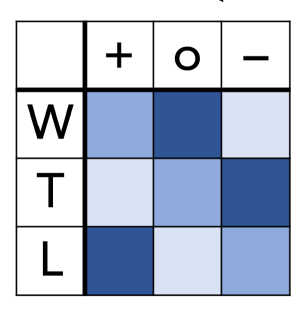 Brockbank, E., & Vul, E. (2021).
Brockbank, E., & Vul, E. (2021).
Formalizing Opponent Modeling with the Rock, Paper, Scissors Game.
Games.
[Link to paper]
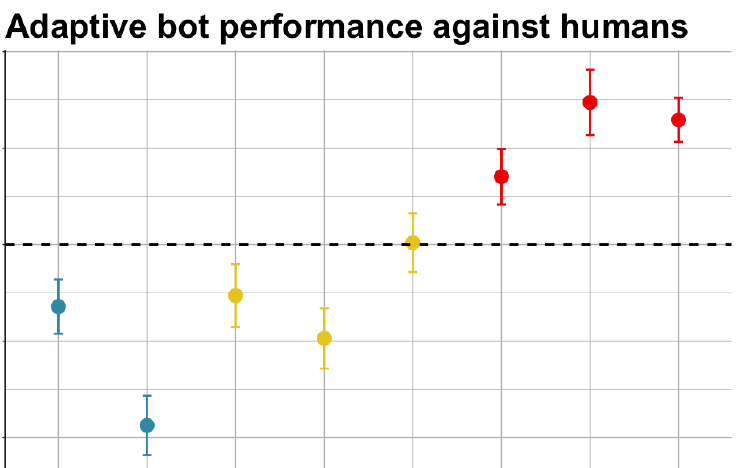 Brockbank, E., & Vul, E. (2021).
Brockbank, E., & Vul, E. (2021).
Humans fail to outwit adaptive rock, paper, scissors opponents.
In Proceedings of the 43rd Annual Conference of the Cognitive Science Society.
[Link to paper] [Link to poster] [Link to presentation (3 min.)]
 Brockbank, E., & Vul, E. (2021).
Brockbank, E., & Vul, E. (2021).
Rock, paper, scissors agents exploit patterns in human sequential behavior.
Presented at the 62nd Annual Meeting of the Psychonomic Society.
[Link to presentation (15 min.)]
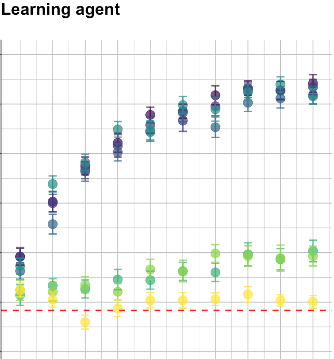 Brockbank, E., & Vul, E. (2020).
Brockbank, E., & Vul, E. (2020).
Modeling Adaptive Reasoning in Rock, Paper, Scissors.
Presented at the 61st Annual Meeting of the Psychonomic Society.
This work received a graduate research award at the conference.
[Link to presentation (5 min.)]
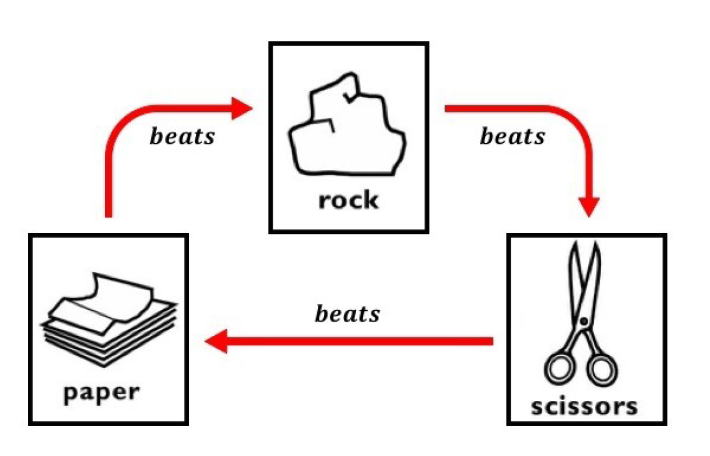 Brockbank, E., & Vul, E. (2020).
Brockbank, E., & Vul, E. (2020).
Recursive Adversarial Reasoning in the Rock, Paper, Scissors Game.
In Proceedings of the 42nd Annual Conference of the Cognitive Science Society.
[Link to paper] [Link to presentation (15 min.)]
 Brockbank, E., & Vul, E. (2020).
Brockbank, E., & Vul, E. (2020).
Adaptive Reasoning in Rock-Paper-Scissors.
Presented at the 53rd Annual Conference of the Society for Mathematical Psychology.
[Link to presentation (15 min.)]
Explanation
In many learning environments, the process of explaining new data can lead adults and children to favor more abstract, generalizable solutions. This has obvious educational import, but also raises interesting psychological questions. How does explanation lead to greater abstraction when learning?
My work in this space has looked at the impact of explanation on relational reasoning in kids, and tried to nail down whether explanation helps adults generate certain hypotheses, or makes them evaluate existing hypotheses differently.
Papers, Presentations, and Posters
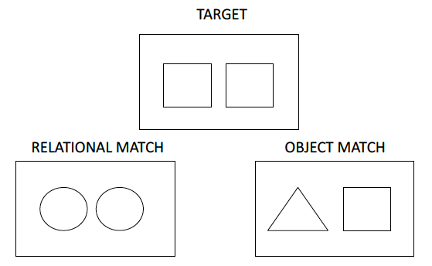 Brockbank, E., Lombrozo, T., Gopnik, A., & Walker, C. M. (2022).
Brockbank, E., Lombrozo, T., Gopnik, A., & Walker, C. M. (2022).
Ask me why, don't tell me why: Asking children for explanations facilitates relational thinking.
Developmental Science.
[Link to paper]
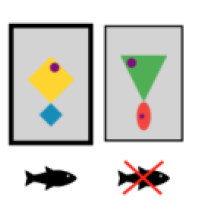 Brockbank, E., & Walker, C. M. (2022).
Brockbank, E., & Walker, C. M. (2022).
Explanation Impacts Hypothesis Generation, but not Evaluation, During Learning.
Cognition.
[Link to paper]
 Brockbank, E., & Walker, C. M. (2020).
Brockbank, E., & Walker, C. M. (2020).
Explanation Supports Hypothesis Generation in Learning.
In Proceedings of the 42nd Annual Conference of the Cognitive Science Society.
[Link to paper] [Link to presentation (15 min.)]
Presented at the 47th Annual Conference of the Society for Philosophy and Psychology.
[Link to presentation (5 min.)]
Numerical Reasoning
Adults have an amazing ability to reason about abstract number in all kinds of ways. But this doesn't come for free; kids struggle to learn basic concepts of number long after they've learned how to count. What's the basis for adult number reasoning and how do kids learn it?
Work I've done looking at numerical reasoning has used computational modeling techniques to try and formalize, a) the strategies children use when reasoning about number and, b) the process by which adults estimate number in the world around them.
Papers, Presentations, and Posters
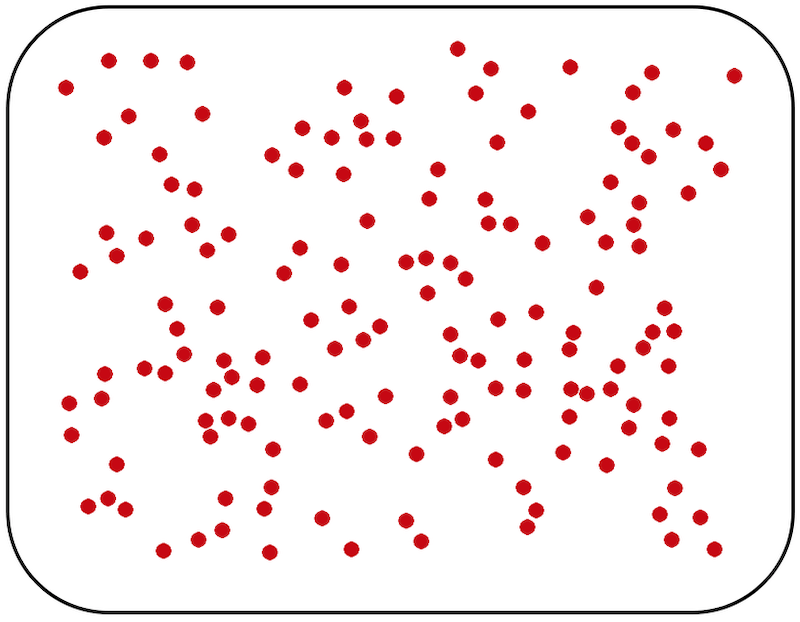 Brockbank, E., Barner, D., & Vul, E. (2022).
Brockbank, E., Barner, D., & Vul, E. (2022).
Ongoing dynamic calibration produces unstable number estimates.
Journal of Experimental Psychology: General.
[Link to paper]
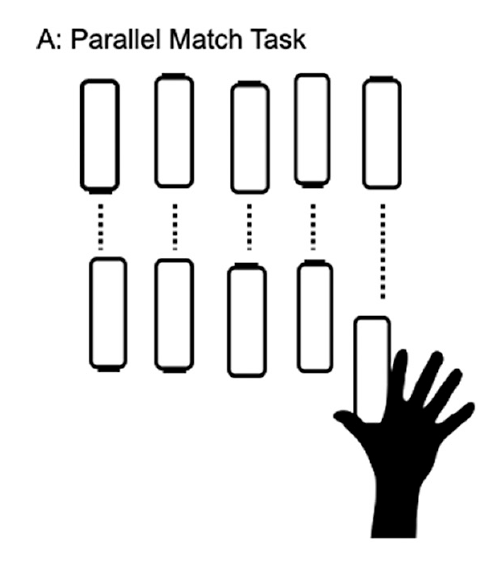 Schneider, R., Brockbank, E., Feiman, R., & Barner, D. (2021).
Schneider, R., Brockbank, E., Feiman, R., & Barner, D. (2021).
Counting and the ontogenetic origins of exact equality.
Cognition.
[Link to paper]
 Brockbank, E., & Vul, E. (2019).
Brockbank, E., & Vul, E. (2019).
Mapping visual features onto numbers.
In Proceedings of the 41st Annual Conference of the Cognitive Science Society.
[Link to paper] [Link to poster]
Miscellaneous
An evaluation of data visualization literacy assessments
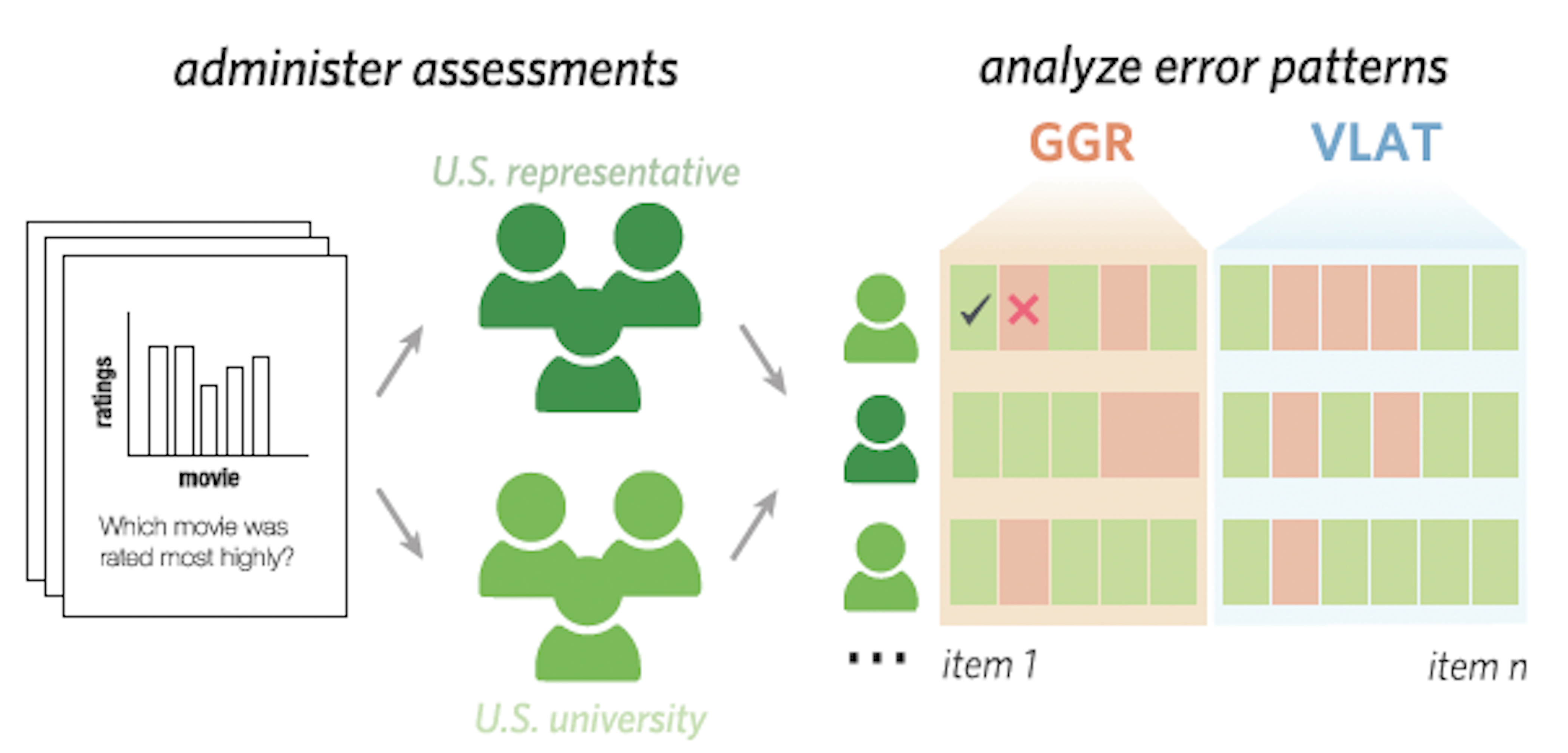 Brockbank, E., Verma, A., Lloyd, H., Huey, H., Padilla, L., & Fan, J. (2025).
Brockbank, E., Verma, A., Lloyd, H., Huey, H., Padilla, L., & Fan, J. (2025).
Evaluating convergence between two data visualization literacy assessments.
Cognitive Research: Principles & Implications.
[Link to paper]
Attitudes and behaviors that predict success in introductory data science courses
 Zheng, K., Brockbank, E., Schwartz, S., Yeager, D. S., Bryan, C., Dweck, C., & Fan, J. (2025).
Zheng, K., Brockbank, E., Schwartz, S., Yeager, D. S., Bryan, C., Dweck, C., & Fan, J. (2025).
Linking student psychological orientation, engagement, and learning in college-level introductory data science.
In Proceedings of the 47th Annual Conference of the Cognitive Science Society.
[Link to paper] [Link to poster]
A review of sample-based models of judgment and decision making in the literature
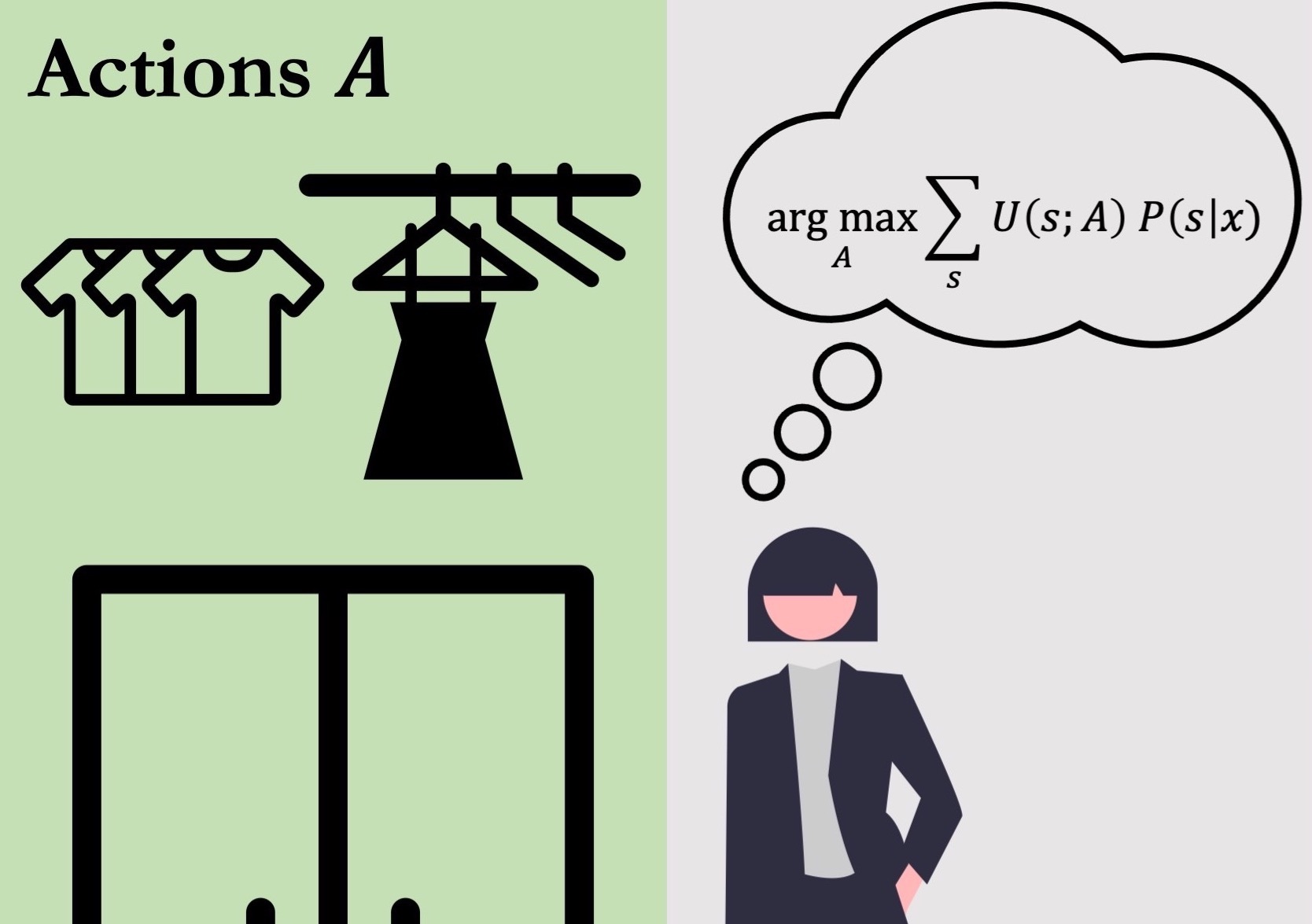 Brockbank, E., Holdaway, C., Acosta-Kane, D., & Vul, E. (2023).
Brockbank, E., Holdaway, C., Acosta-Kane, D., & Vul, E. (2023).
Sampling Data, Beliefs, and Actions.
In Fiedler, K., Juslin, P., & Denrell, J. (Eds.), Sampling in Judgment and Decision Making. Cambridge University Press.
[Link to chapter]
Predicting collaboration structure in large publication datasets
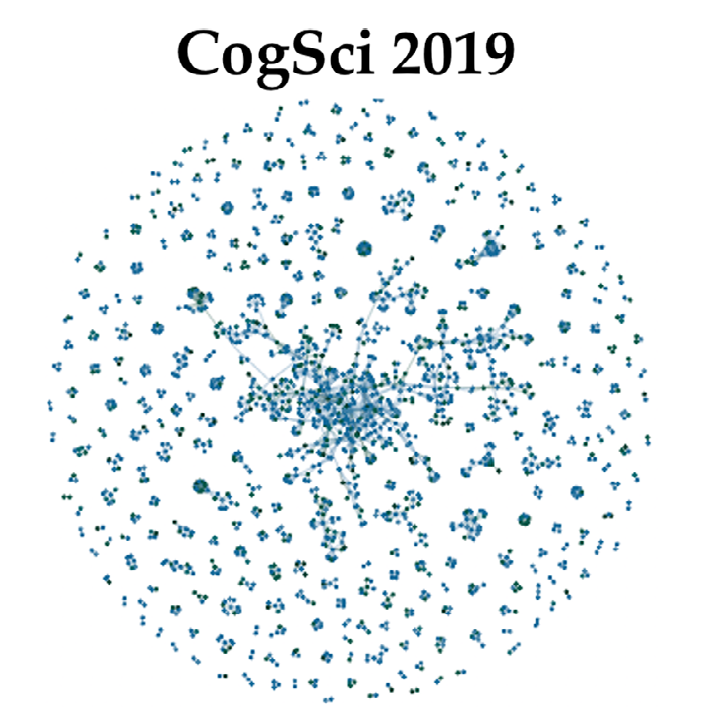 Destefano, I., Oey, L.A., Brockbank, E., & Vul, E. (2021).
Destefano, I., Oey, L.A., Brockbank, E., & Vul, E. (2021).
Integration by Parts: Collaboration and Topic Structure in the CogSci Community.
Topics in Cognitive Science.
[Link to paper]
 Oey, L.A., Destefano, I., Brockbank, E., & Vul, E. (2020).
Oey, L.A., Destefano, I., Brockbank, E., & Vul, E. (2020).
Formalizing Interdisciplinary Collaboration in the CogSci Community.
In Proceedings of the 42nd Annual Conference of the Cognitive Science Society.
This work received a computational modeling prize at the conference.
[Link to paper]